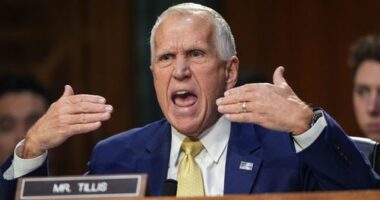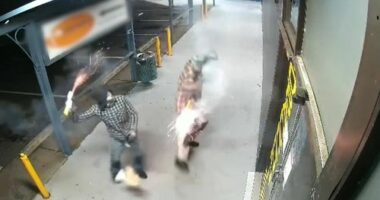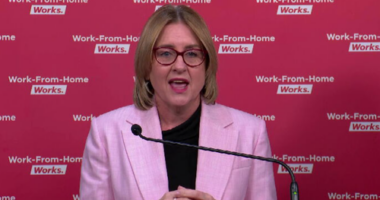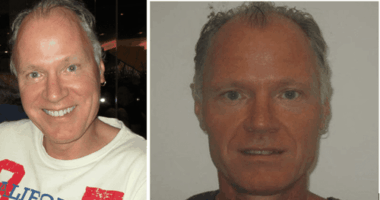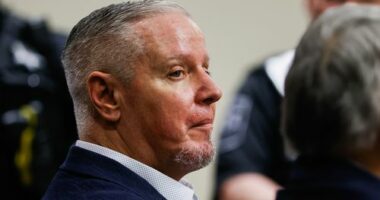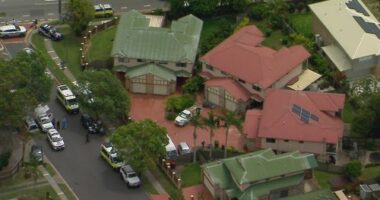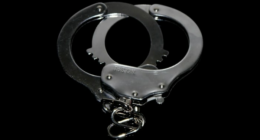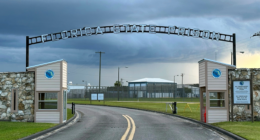Share this @internewscast.com
This incident took place even though the journalists had official approval in both English and Mandarin from the Chinese Foreign Ministry authorizing them to film in Beijing.
SBS has learned that the situation was taken note of in Canberra and viewed as inconsistent with the anticipated treatment of Australian media during the visit.
SBS World News used the government-provided photograph but typically opts to showcase the work of our journalists, both written and visual, especially when they’ve traveled such distances to bring the story to life.
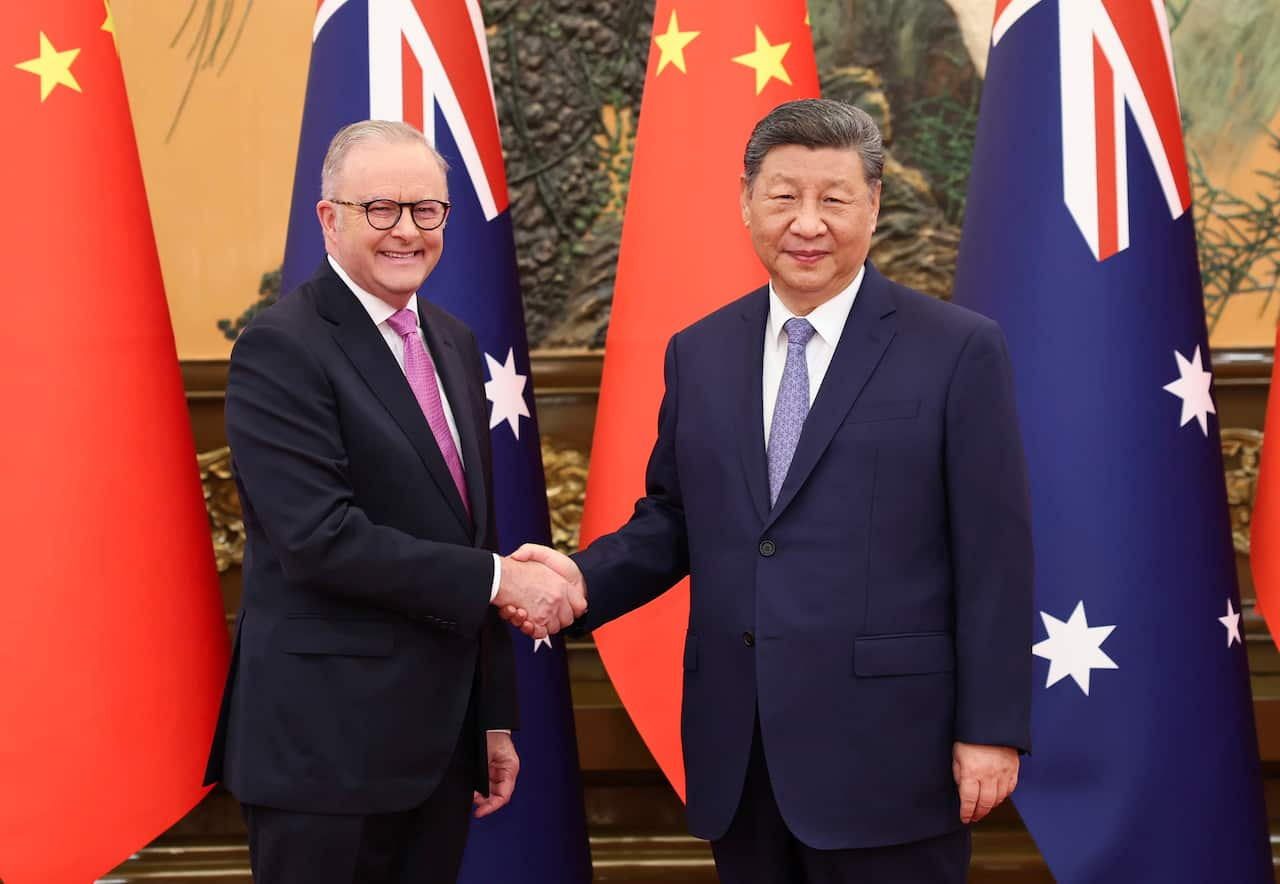
Prime Minister Anthony Albanese shakes hands with Chinese President Xi Jinping prior to their bilateral meeting at the Great Hall of the People in Beijing. Source: AP / Xinhua / Huang Jingwen
Reporters were able to freely capture many other moments of the trip: the prime minister and his fiancée Jodie Haydon strolling on the Shanghai Bund with local football players, walking a cordoned off area of the Great Wall of China mulling its extraordinary history and joking about looking for a celebrant, meeting with aspiring Chinese tennis players in Chengdu, and waving at giant pandas in a local sanctuary.
The pictures were making their way to the Australian audience and to many tens of millions in China, not to mention the global audience that is hungry for contact between world leaders and China in this potential turning point in world history.
Again, Albanese had no assurances to provide about Dr Yang’s future.
But Beijing’s initial take was stronger.
He also attended a dinner banquet hosted by Premier Li, which included performances by Chinese musicians of Australian songs by Paul Kelly, Powderfinger and Midnight Oil.
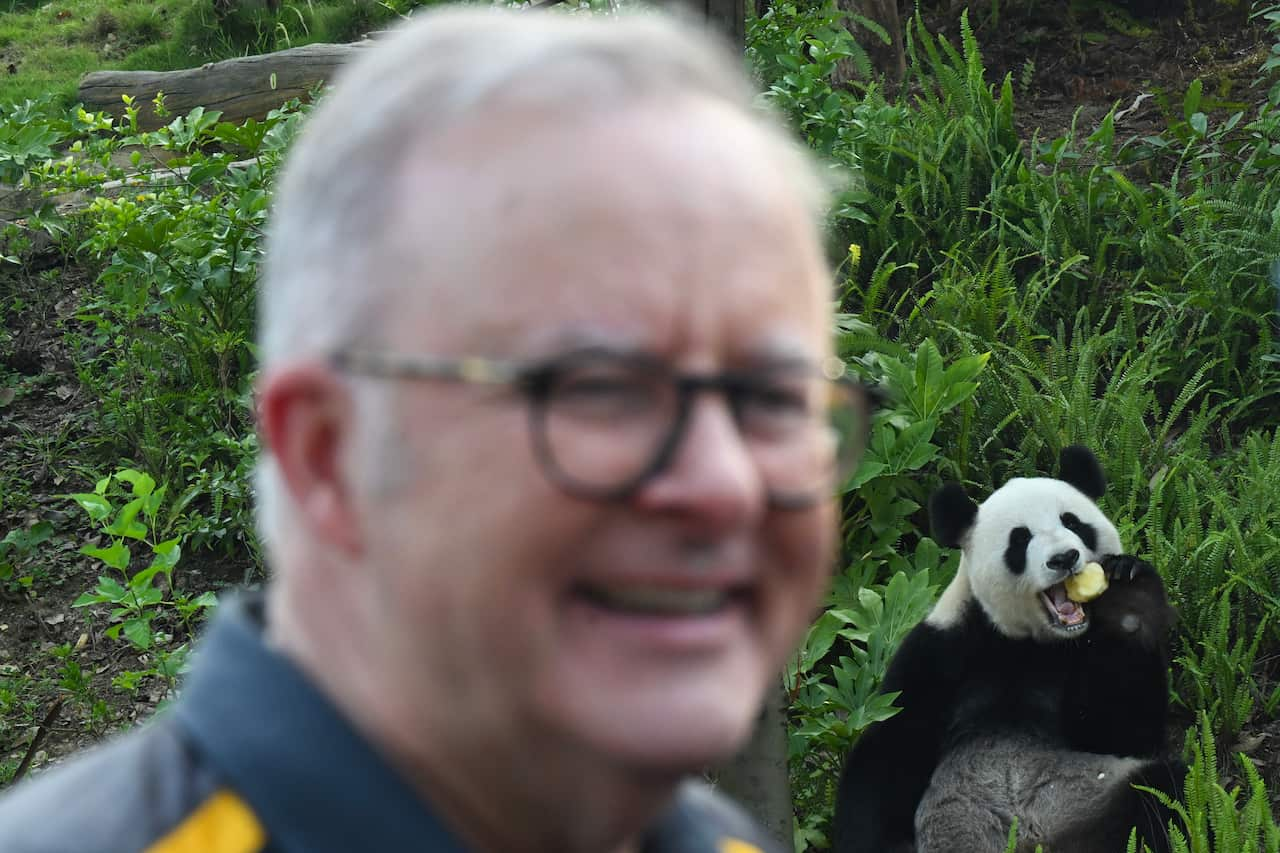
Prime Minister Anthony Albanese visited pandas in a sanctuary in Chengdu during his second official visit to China. Source: AAP / Lukas Coch
On trade, an issue that underpinned the whole visit, both countries spoke proudly about having open markets and the importance of trading ties, rhetoric that seemed pointed at the chaos emanating from the White House.
There was discussion about how Australia is meeting the challenges of climate change and moving to promote green steel production, as the budget-boosting iron ore industry gets increasingly jittery about high-level ore mines in Africa that are coming online and could be competitive soon.
Panda-monium
The demise of the panda population has come as the booming Chinese economy has fuelled urban sprawl and encroached on the habitat of the world-renowned bears.
Pandas are viral magic on social media, and the audience for these images isn’t just Australian; the pictures were also broadcast on Chinese state television.
Slow living diplomacy
It’s often the tightness of the polls that makes leaders anxious about being perceived to be more focused on international jetsetting than the plight of their constituents.


